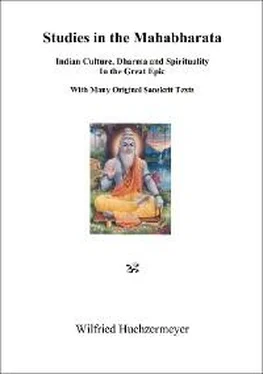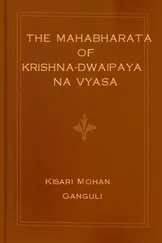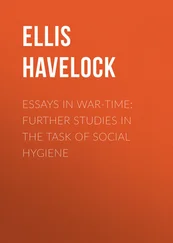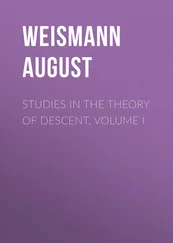locanairanujagmuste tamā dṛṣṭipathāttadā /
manobhiranujagmuste kṛṣṇaṁ prītisamanvayāt // 21
atṛptamanasāmeva teṣāṁ keśavadarśane /
kṣipramantardadhe śauriścakṣuṣām priyadarśanaḥ // 22
They followed Kṛṣṇa with their eyes as long as he was within sight, and then followed him in their minds with love. Even while they were still unsated of the sight of Keśava, the gracious Śauri soon disappeared from their sight.
These are masterful verses. The eyes of the Pāṇḍavas refuse as it were to lose Kṛṣṇa out of sight and in any case their loving thoughts will follow him even beyond the horizon. Somewhat listlessly the brothers return home:
akāmā iva pārthāste govindagatamānasaḥ /
nivṛtyopayayuḥ sarve svapuraṁ puruṣarṣabhāḥ /
syandanenātha kṛṣṇo’pi samaye dvārakāmagāt. / 23
Unwilling as it were the Pārthas, with their minds fixed on Govinda, turned back and those bull-like men returned to their city. Kṛṣṇa in his chariot reached Dvārakā in time.
Alf Hiltebeitel, Kṛṣṇa and the Mahābhārata (A Bibliographical Essay), Annals of the Bhandarkar Oriental Research Institute, Vol. LX (1979), 91Published in: Aṛtadhārā, Prof. R.N. Dandekar Felicitation Volume, pp. 187-194.Mbhr. 6.25.7-8On the Meaning of the Mahābhārata, 63.Mbhr. 1.1.20-22Mbhr. 1.1.66Mbhr. 1.178.9-10Mbhr. 1.181.32Mbhr. 1.183.4
3.
Śrī Kṛṣṇa – Guru and Leader of the Pāṇḍavas
In the previous chapter we have learnt something about the affectionate relationship between Kṛṣṇa and the five Pāṇḍavas. In a few verses we got hints of his future role as their master and guru, but such a position was not yet explicitly stated. In this present chapter we will trace his becoming the leader of the Pāṇḍavas and will see how he occupies an eminent position even in this early second Book of the Mahābhārata.
The first occasion for Kṛṣṇa to be called in as chief advisor presented itself when Nārada paid a visit to King Yudhiṣṭhira, suggesting to him to undertake the Rājasūya sacrifice which would make the senior most Pāṇḍava an unchallenged universal monarch. Even though Nārada mentioned that Pāṇḍu himself33 had wished this sacrifice to be performed, Yudhiṣṭhira chose to approach Kṛṣṇa for authoritative advice:
Believing that a sacrifice should not just ruin oneself, and carrying out his task with great care, he thought of Kṛṣṇa Janārdana for settling the question, of Hari who is superior to the entire world… When he had made this final decision, Yudhiṣṭhira Pārtha quickly dispatched as to a guru a messenger to the guru of all beings.34
Kṛṣṇa responds readily to Yudhiṣṭhira’s request and visits the Pāṇḍavas very soon. In the following passage Yudhiṣṭhira gives a detailed analysis of several kinds of advice which one can receive from various sources, and he explains why Kṛṣṇa alone is the perfect, objective guide who can be trusted without any reservation:
Some people do not point out an error out of friendship. Others flatter for personal gains… But you are above such motivations and above anger and desire. Please tell us what is best for us in this world.35
Kṛṣṇa’s Dialogue with Yudhiṣṭhira
Kṛṣṇa at first talks about the powerful alliance of King Jarāsaṁdha and Kāṁsa mentioning how the Vṛṣṇis had to flee from Mathurā to Dvārakā to escape Jarāsaṁdha’s invincible army. This event is likely to have really taken place because we can hardly assume that any poet would have invented an episode in which the great avatāra is shown to be in the defensive.
Kṛṣṇa proposes then that Yudhiṣṭhira should accept to become samrāṭ, universal sovereign. As a precondition for attaining this high status, Jarāsaṁdha would have to be killed. By this occasion 86 prisoners in his dungeons – all of them kings defeated in battle – would be released and saved from the human sacrifice that Jarāsaṁdha is planning to offer to Mahādeva.
The following scene, a dialogue between Yudhiṣṭhira and Kṛṣṇa, with Bhīma and Arjuna playing minor roles as additional speakers, is a first example of Kṛṣṇa helping one of the Pāṇḍavas overcome a deep inner crisis. In fact, Kṛṣṇa’s well-known discourse in the Bhagavadgītā is only the culmination of a number of similar elucidations which form a whole consistent series of talks on the value of a righteous battle, a battle for dharma, on overcoming personal weaknesses and hesitations, risking one’s life while fighting for Truth.
Yudhiṣṭhira’s objections to the undertaking of attacking Jarāsaṁdha are characteristic of his nature. He seeks tranquillity and acquiescence rather than the daring assault and upheaval. This project of freeing those unfortunate kings would certainly disturb his peace:
śamameva paraṁ manye na tu mokṣādbhavecchamaḥ /
ārambhe pārameṣṭhyaṁ tu na prāpyamiti me matiḥ //
I consider tranquility highest, but no tranquility would result from their release. If I undertake this, I assume that the highest cannot be achieved.
Yudhiṣṭhira’s weak-hearted response to Kṛṣṇa’s proposal is countered by Bhīma with a strong rebuttal. He pronounces the standard formula for victory which is to be often quoted in the text hereafter:
In Kṛṣṇa there is policy, in myself strength, in Arjuna victory. Like three fires we shall vanquish the Māgada.36
Kṛṣṇa supports Bhīma’s inspired argument with further deliberations, trying to warm up the kṣatriya in Yudhiṣṭhira. He points out the glory of a kṣatriya dying by the sword and draws attention to the cruel fate of those 86 kings who are to be killed by Jarāsaṁdha.
Yudhiṣṭhira retorts with a typical sattvic argument. Would it not be egoistic on his side to send Kṛṣṇa, Bhīma and Arjuna into the battle just for his own glory? Bhīma and Arjuna are like his eyes, Kṛṣṇa is his mind: how could he risk their lives? This argument needs to be analysed carefully. Although Yudhiṣṭhira holds it to be egoistic to accept the proposal for a battle, we may say that from Kṛṣṇa’s viewpoint there is actually an egoistic reaction behind Yudhiṣṭhira’s refusal. It is not his glory for which the battle against the asuric Jarāsaṁdha is to be fought, but the glory of dharma as such; even though Yudhiṣṭhira would receive the fruits of this action, his own glory is not the immediate aim. He is only a human representative destined to receive the honour of becoming samrāṭ.
Even the fact that Yudhiṣṭhira is being asked for his permission for this action by Kṛṣṇa does not prove anything except Kṛṣṇa’s politeness. The latter has already made up his mind and will proceed anyhow. But since he has to act with other human beings, he has to deal with their problems and resistances. And for the time being Yudhiṣṭhira would rather prefer to give up the project:
I should like to abandon this task, Janārdana. My mind is against it. The Rājasūya is hard to achieve.37
We feel here reminded of Arjuna’s refusal to fight in the Bhagavadgītā (2.9):
I shall not fight, he said to Govinda, and became silent.
Paradoxically, in this present scene we find Arjuna using the same arguments against Yudhiṣṭhira now which Kṛṣṇa later uses in the Bhagavadgītā with reference to Arjuna:
[Arjuna said:] A kṣatriya’s concern is always victory, oh king… If for the sake of the sacrifice we achieve the destruction of Jarāsaṁdha and the release of the kings – what could be higher than that? If we don’t act, they will surely think that we lack character… Afterwards the ochre robe will be easily available for munis who desire peace.38
Читать дальше












